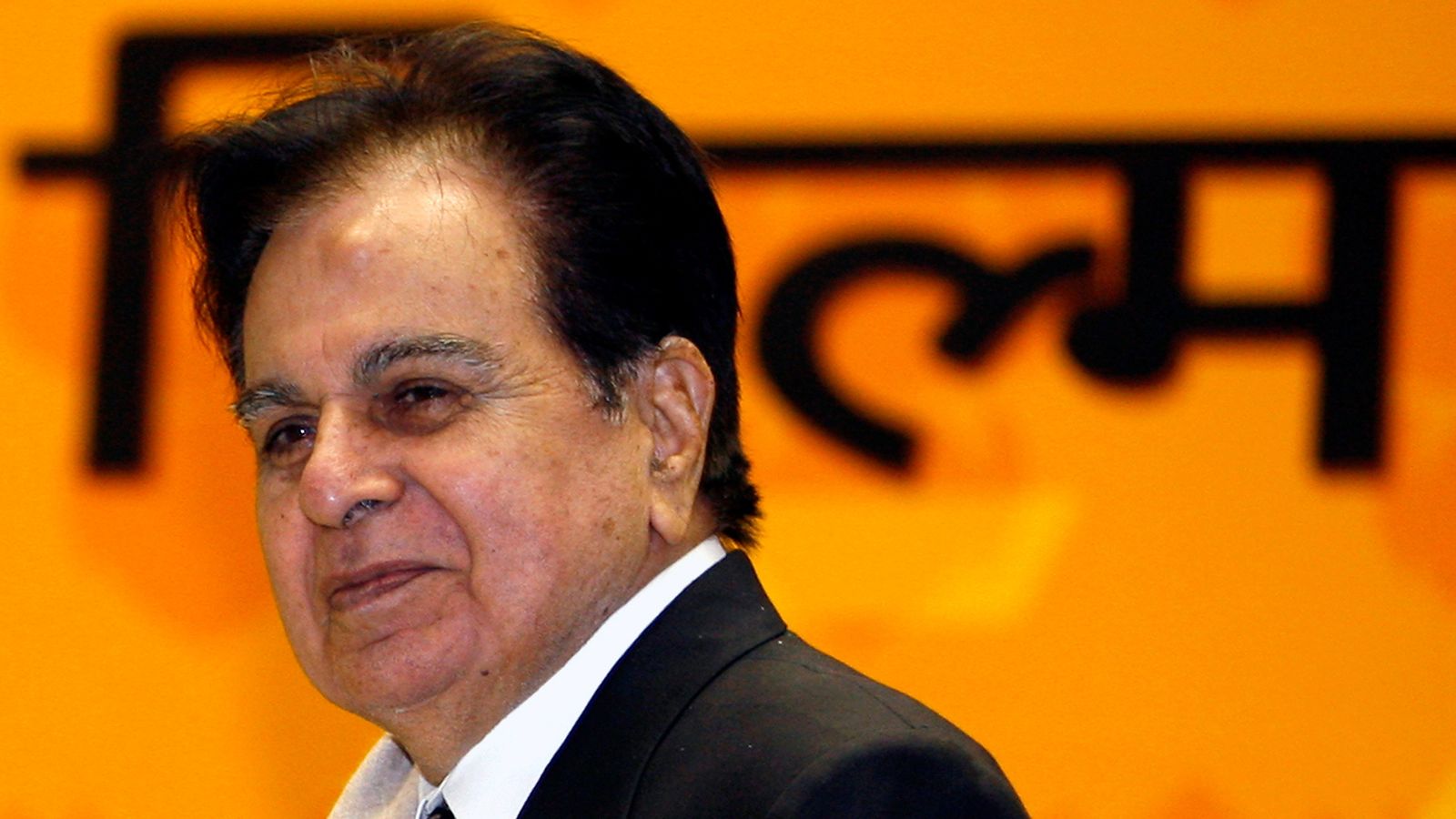One of Hindi cinema’s greatest actors, Dilip Kumar, has died at the age of 98.
The actor was in intensive care at the Hinduja Hospital in Mumbai for treatment of a long-term illness after spending the last few years dealing with a kidney problem and pneumonia.
On Monday, his wife Saira Banu said his health was improving and asked his fans to pray for his early discharge.
But on Wednesday morning, relative Faisal Farooqui posted on the actor’s Twitter account: “With a heavy heart and profound grief, I announce the passing away of our beloved Dilip Saab, few minutes ago.”
With a heavy heart and profound grief, I announce the passing away of our beloved Dilip Saab, few minutes ago.
We are from God and to Him we return. – Faisal Farooqui
The actor, whose career spanned more than five decades, was a national treasure in India.
Kumar is said to have turned down the role of Sherif Ali in David Lean’s iconic film Lawrence Of Arabia, which was then played by Omar Sharif.
But he certainly kept busy. Known as the “tragedy king” and hailed as the first superstar of Bollywood, he has made over 65 films – some which are enduring classics.
The film Devdas, where he played the leading role of a doomed lover, catapulted him into super-stardom.
And Mughal-e-Azam – one of his best-known films – sealed his position as one of the greatest actors in Indian cinema.
Condolences and tributes have poured in from across India for the legendary actor.
Prime Minister Narendra Modi tweeted: “Dilip Kumar Ji will be remembered as a cinematic legend.
“He was blessed with unparalleled brilliance, due to which audiences across generations were enthralled. His passing away is a loss to our cultural world.”
Actor Amitabh Bachchan, who starred with Kumar in a number of films, tweeted: “An institution has gone… whenever history of Indian cinema will be written, it shall always be ‘before Dilip Kumar, and after Dilip Kumar’.”
Dilip Kumar Ji will be remembered as a cinematic legend. He was blessed with unparalleled brilliance, due to which audiences across generations were enthralled. His passing away is a loss to our cultural world. Condolences to his family, friends and innumerable admirers. RIP.
Born Mohammad Yusuf Khan in Peshawar, Pakistan, he debuted as Dilip Kumar in the film Jwar Bhata in 1944 in colonial India.
Though his first film went unnoticed, three years later his film Jugnu became a box office hit. After that there was no looking back.
Some of his classics were: Andaz (1949), Aan (1952), Daag (1952), the dramatic Devdas in 1955, Azaad (1955), Mughal-e-Azam in 1960, Ganga Jamuna (1961), Ram aur Shyam (1967), Kranti (1981) Shakti (1982) and Saudagar (1991).
Qila in 1998 was the last film he did.
The 1970s weren’t particularly good for Kumar as new actors had entered Bollywood.
He experimented with different roles but none of his films were successful and he took a hiatus from acting from 1976 to 1980.
The film Kranti, released in 1981, was a blockbuster and Kumar came roaring back into the public’s adulation.
However, he never took up international projects, saying: “I didn’t want to leave our cinema to venture abroad.”
He received the Padma Vibhushan, Padma Bhushan, Dada Phalke and Filmfare awards among others, and was conferred with Pakistan’s highest civilian honour – the Nishan-e-Imtiaz – in 1998, the only Indian to do so.
Last year he lost two brothers to COVID-19, but he was not informed about their deaths as he has been too unwell.
He is survived by his wife Saira Banu – a well-known actress of the 1960s and 1970s.
His funeral will take place on Wednesday evening at Juhu Qabrastan, Mumbai.






















